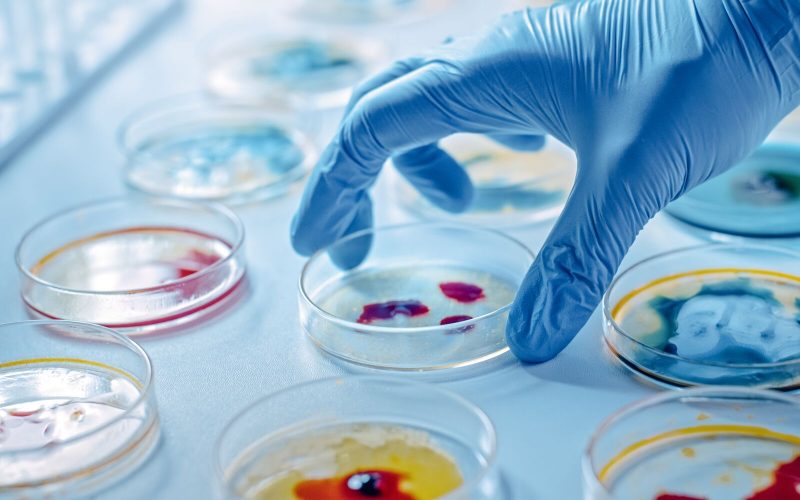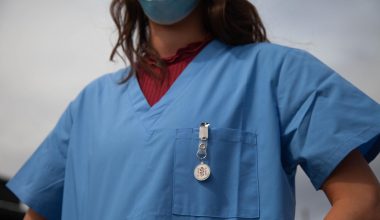Microbiology is an exciting and ever-growing field that deals with the study of microscopic organisms like bacteria, viruses, and fungi. It’s fascinating stuff, and if you’re interested in a career in this field, there are lots of courses available in Nigeria.
This article discusses some of the top Microbiology courses offered in Nigeria. We’ll explore the different options available and give you a better idea of what to expect from each course.
So, if you’re thinking of pursuing a career in Microbiology, keep reading to find out more.
Table of contents
- Microbiology
- Is microbiology a professional course?
- Which course is best for Microbiology?
- Top Microbiology courses in Nigeria
- 1. B.Sc. Microbiology
- 2. M.Sc. Microbiology
- 3. B.Sc. Biomedical Science
- 4. B.Sc. Medical Microbiology
- 5. M.Sc. Medical Microbiology
- 6. B.Sc. Environmental Microbiology
- 7. B.Sc. Pharmaceutical Microbiology
- 8. M.Sc. Pharmaceutical Microbiology
- 9. B.Sc. Food Microbiology
- 10. B.Sc. Industrial Microbiology
- 11. B.Sc. Marine Microbiology
- 12. B.Sc. Agricultural Microbiology
- 13. B.Sc. Soil Microbiology
- 14. B.Sc. Molecular Microbiology
- 15. B.Sc. Clinical Microbiology
- 16. B.Sc. Environmental and Medical Microbiology
- 17. B.Sc. Biotechnology and Microbiology
- 18. M.Sc. Environmental Microbiology
- 19. M.Sc. Industrial Microbiology
- 20. M.Sc. Food Microbiology
- 21. M.Sc. Marine Microbiology
- How many years course is microbiology?
- Which field of microbiology is best?
- Is microbiology a marketable course in Nigeria?
- Is microbiology well paying?
- Is microbiology better than nursing?
- Which course is best microbiology or pharmacy?
- Is microbiology better than biochemistry in Nigeria?
- What is the jamb score for Microbiology?
- Where can a microbiologist work in Nigeria?
- FAQs
- Conclusion
- References
- Recommendations
Microbiology
Microbiology is a fascinating area of study that involves learning about the tiny organisms that surround us, like bacteria and viruses. It’s all about understanding how these organisms work, how they interact with other living things, and how we can use this knowledge to improve human health.
Microbiology courses in Nigeria will teach you about things like cell biology, genetics, immunology, and biochemistry. You’ll learn about the structure and function of different types of microorganisms, how diseases spread, and how to develop new treatments for infections.
Microbiology is a great choice for anyone who’s curious about the world around us and wants to make a difference in the field of medicine and healthcare.
The duration of microbiology courses in Nigeria can vary depending on the type of program you choose. Undergraduate programs typically take four years to complete, while postgraduate programs can take anywhere from one to three years.
No matter which program you choose, you can expect to gain a deep understanding of microorganisms and their role in the world around us. And who knows, maybe you’ll even discover a new antibiotic or vaccine that could save lives!
Read: List of courses offered in Ekiti State University and their cut off mark | 2024
Is microbiology a good course to study in Nigeria?
It’s a great question! Microbiology can be an exciting field to study in Nigeria, but it’s important to consider the current job market before making a decision.
While there are plenty of interesting opportunities in microbiology, such as working in research, healthcare, and environmental protection, the truth is that there may not be enough jobs for everyone. This can lead to some graduates struggling to find work or having to settle for jobs that don’t match their qualifications.
So, if you’re thinking about studying microbiology in Nigeria, it’s a good idea to research the job market and talk to people in the field before making a decision.
Is microbiology a professional course?
Microbiology is certainly a professional field, but it might not be what you traditionally think of when you hear the word “professional.” In Nigeria, the term “professional” often refers to fields like medicine, law, or engineering.
However microbiology is a highly specialized and respected field of study, and microbiologists can find employment in a variety of settings, from hospitals and research labs to food companies and environmental organizations.
It’s definitely a professional career path, but it’s not as commonly recognized as some other fields.
Which course is best for Microbiology?
If you’re looking for the best course for Microbiology, one great choice is BSc Microbiology. This course is all about learning about microorganisms in detail. You’ll study how they work, how they interact with other living things, and how they cause diseases.
You’ll also learn about how we can use this knowledge to create new medicines and treatments.
You’ll get to use all kinds of cool tools and techniques to study microorganisms, like microscopes and genetic sequencers. This course will give you a really deep understanding of microorganisms, which can be really useful in lots of different fields.
Top Microbiology courses in Nigeria
Here are over 20 microbiology courses in Nigeria:
- B.Sc. Microbiology
- M.Sc. Microbiology
- B.Sc. Biomedical Science
- B.Sc. Medical Microbiology
- M.Sc. Medical Microbiology
- B.Sc. Environmental Microbiology
- B.Sc. Pharmaceutical Microbiology
- M.Sc. Pharmaceutical Microbiology
- B.Sc. Food Microbiology
- B.Sc. Industrial Microbiology
- B.Sc. Marine Microbiology
- B.Sc. Agricultural Microbiology
- B.Sc. Soil Microbiology
- B.Sc. Molecular Microbiology
- B.Sc. Clinical Microbiology
- B.Sc. Environmental and Medical Microbiology
- B.Sc. Biotechnology and Microbiology
- M.Sc. Environmental Microbiology
- M.Sc. Industrial Microbiology
- M.Sc. Food Microbiology
- M.Sc. Marine Microbiology
1. B.Sc. Microbiology
This course is all about understanding little living things called microorganisms. These include things like bacteria and viruses. You’ll learn how these tiny creatures work and how they cause diseases.
After graduating, you can work as a microbiologist in a lab or as a medical scientist, creating new medicines and treatments for diseases.
2. M.Sc. Microbiology
This is an advanced Microbiology course that helps you learn more about microorganisms and their impact on the world.
You’ll study topics like the role of microorganisms in the environment, how they interact with other living things, and how they can be used for good, like in medicine and agriculture. Graduates of this course can find jobs in research, healthcare, and many other areas.
3. B.Sc. Biomedical Science
This course combines biology, medicine, and other sciences to study human health and disease. You’ll learn about microorganisms and how they affect human health, and you’ll also study topics like genetics, physiology, and immunology.
After graduating, you can work in a range of healthcare settings, like hospitals, research labs, or even pharmaceutical companies.
4. B.Sc. Medical Microbiology
This course is focused on the study of microorganisms that cause diseases in humans. You’ll learn about things like bacterial and viral infections, and how they can be prevented and treated.
Graduates of this course can work as medical microbiologists, studying diseases and developing new treatments. They can work in labs, hospitals, and other healthcare settings.
5. M.Sc. Medical Microbiology
This is an advanced degree that helps you learn more about microorganisms and their role in human health and disease. You’ll study topics like infectious diseases, immunology, and biotechnology.
Graduates of this course can work as medical microbiologists in hospitals, research labs, and pharmaceutical companies, developing new treatments for diseases and helping to protect public health.
6. B.Sc. Environmental Microbiology
This course focuses on the role of microorganisms in the environment, including things like soil, water, and the atmosphere. You’ll learn about topics like microbial ecology, water and wastewater treatment, and bioremediation.
Graduates of this course can work in environmental consulting firms, water treatment plants, and other organizations focused on environmental health and sustainability.
Also, read: 20+ Udemy Free Courses with Certificates | 2024
7. B.Sc. Pharmaceutical Microbiology
This course is all about the role of microorganisms in the pharmaceutical industry. You’ll study topics like quality control, sterility testing, and biotechnology.
Graduates of this course can work in pharmaceutical companies, testing the safety and efficacy of medicines, and ensuring that they’re free of harmful microorganisms.
8. M.Sc. Pharmaceutical Microbiology
This advanced degree helps you learn more about microorganisms in the pharmaceutical industry. You’ll study topics like microbiological analysis, antimicrobial agents, and biopharmaceuticals.
Graduates of this course can work in the pharmaceutical industry, doing research and developing new medicines and treatments.
9. B.Sc. Food Microbiology
This course is all about the role of microorganisms in food production, storage, and safety. You’ll learn about topics like food spoilage, fermentation, and foodborne diseases.
Graduates of this course can work in food production companies, ensuring that food is safe and free of harmful microorganisms.
10. B.Sc. Industrial Microbiology
This course is all about using microorganisms in manufacturing. You’ll learn about things like how to use microorganisms to make chemicals, medicines, and other products. After graduating, you can work in industries like pharmaceuticals, biotechnology, and waste management.
11. B.Sc. Marine Microbiology
This course focuses on microorganisms in marine environments. You’ll learn about things like how microorganisms affect the oceans and the organisms that live in them, and how they can be used to clean up pollution. After graduating, you can work in marine biology, ecology, and environmental protection.
12. B.Sc. Agricultural Microbiology
This course is about using microorganisms in agriculture. You’ll learn about things like how microorganisms affect plants and soil, and how they can be used to improve crop production. After graduating, you can work in agriculture, doing things like making fertilizers and improving soil quality.
13. B.Sc. Soil Microbiology
This course is about the microorganisms that live in soil. You’ll learn about things like how these microorganisms affect plant growth, and how they can be used to improve soil fertility. After graduating, you can work in agriculture and environmental science, helping to improve soil health and increase crop yields.
14. B.Sc. Molecular Microbiology
This course is about the molecular biology of microorganisms. You’ll learn about things like how microorganisms grow and reproduce, and how they interact with other organisms on a molecular level.
You can work in research, studying things like genetic engineering and how microorganisms cause diseases.
15. B.Sc. Clinical Microbiology
This course is about the use of microorganisms in clinical settings. You’ll learn about things like how to identify and treat infections caused by microorganisms, and how to prevent the spread of disease. After graduating, you can work in healthcare settings like hospitals, laboratories, and clinics.
16. B.Sc. Environmental and Medical Microbiology
This course combines the study of microorganisms in the environment and in medicine. You’ll learn about things like how microorganisms affect the environment, and how they can cause disease in humans.
After graduating, you can work in environmental protection and healthcare, helping to prevent the spread of diseases and protect the environment.
17. B.Sc. Biotechnology and Microbiology
This course combines the study of biotechnology and microbiology. You’ll learn about things like how microorganisms can be used to produce medicines, chemicals, and other products. After graduating, you can work in biotechnology, pharmaceuticals, and environmental protection, helping to develop new technologies and products using microorganisms.
18. M.Sc. Environmental Microbiology
This course deals with the study of microorganisms in various environmental conditions, including soil, water, air, and bioreactors. It focuses on understanding how microorganisms interact with the environment and their impact on ecological processes.
19. M.Sc. Industrial Microbiology
This course focuses on the use of microorganisms in industry, such as bioremediation, biotechnology, and the production of pharmaceuticals, foods, and fuels.
20. M.Sc. Food Microbiology
This course explores the intricate relationships between microorganisms and food, from the microbial spoilage of perishable foods to the beneficial role of microorganisms in food fermentation. Students learn about food safety regulations, food testing methods, and the prevention of foodborne illnesses.
21. M.Sc. Marine Microbiology
In this Microbiology course, students explore the fascinating world of marine microbes, learn about their vital role in sustaining the ocean’s ecosystem, study microbial diversity and nutrient cycling, and gain insight into the effects of climate change and human activities on the health of marine ecosystems.
Above are the top 20+ courses under microbiology.
Also, read: 20+ Best Science Courses to Study in Nigeria
How many years course is microbiology?
A B.Sc. (Hons) Microbiology degree program in Nigeria usually takes four years to complete if you’re starting as a Unified Tertiary Matriculation Examination (UTME) candidate.
But if you’re a direct entry candidate, which means you have some advanced qualifications, like an associate’s degree or advanced level exams, you can complete the degree in three years.
Either way, you’ll learn a lot about microorganisms, their behavior, and their interactions with the environment during your studies.
Which field of microbiology is best?
Of all the different fields of microbiology, I would say that Food Microbiology might be the best. It’s pretty cool because it combines food and science, which means you can help keep food safe and tasty.
You can study things like bacteria and fungi that can make food go bad, or you can learn about good bacteria that help make things like yogurt and cheese. You can work in all kinds of places, like food companies and labs, to make sure the food we eat is safe and healthy.
Is microbiology a marketable course in Nigeria?
Yes, Microbiology is a marketable course in Nigeria. What I mean by marketable is that you can get jobs and make money with a microbiology degree. Microbiology is a really important field in Nigeria because it helps keep people healthy and safe.
Microbiologists can work in hospitals to help fight diseases, or they can work in labs to develop new medicines. They can also work in food companies to make sure the food we eat is safe and healthy.
There are lots of places where microbiologists can work, like private and government hospitals, private labs, schools, food companies, and more.
Is microbiology well paying?
Microbiology can be a pretty good-paying job in Nigeria, depending on the field. Some microbiologists earn more than others, depending on their experience, skills, and the type of company they work for.
But on average, microbiologists in Nigeria can make a decent living. It’s important to remember that salary isn’t everything, though. If you’re passionate about microbiology and you love what you do, that’s worth a lot too!
How much is a microbiologist paid in Nigeria?
The amount that a microbiologist gets paid in Nigeria depends on a lot of things, like experience, skills, and where they work.
Some sources like Glassdoor say that microbiologists make around NGN 55,000 – NGN 304 per month in Nigeria, while other sources say that their salaries can range from NGN 359,000 to NGN 558,000 per month.
Also, according to Bscholarly, microbiologists can make anywhere from NGN 70,000 to NGN 300,000 per month, depending on things like where they work and how much experience they have.
Which field of microbiology pays the most?
Microbiology is a big field, and the amount of money that microbiologists make can depend on what kind of work they do. According to some sources, some of the highest-paying jobs in microbiology include being a Microbiology Technologist, an Electron Microscopist, or a Microbiology Analyst.
These jobs can pay from around $64,500 to over $101,500 per year. These jobs are all pretty specialized, and they involve using advanced tools and techniques to study microorganisms and the diseases they cause.
Is microbiology better than nursing?
It’s hard to say that microbiology is “better” than nursing because they are two different fields that both offer important benefits. Nurses focus on patient care and helping people feel better, while microbiologists focus on studying microorganisms and developing new treatments for diseases.
Both jobs are really important and can have a big impact on people’s lives. However, if you’re more interested in studying microorganisms and doing research, then microbiology might be a better fit for you.
If you’re more interested in helping people feel better and providing direct care, then nursing might be a better fit for you.
Which course is best microbiology or pharmacy?
This is another tough one because both microbiology and pharmacy are great fields! If you’re interested in studying the tiny organisms that cause diseases, like bacteria and viruses, and finding new ways to treat those diseases, then microbiology might be the way to go.
If you’re more interested in medicines, like how they work and how to make them, then pharmacy might be a better fit. Both fields offer exciting and rewarding careers, so it’s really about what interests you the most.
Is microbiology better than biochemistry in Nigeria?
Both microbiology and biochemistry are great fields to study, and it’s hard to say which one is “better” because it really depends on what you’re interested in.
Microbiology is more focused on studying microorganisms and how they interact with humans and the environment, while biochemistry is more focused on studying the chemical processes that happen inside living things.
If you’re more interested in studying small living things, like bacteria and viruses, then microbiology might be the way to go. If you’re more interested in studying the chemical reactions that happen inside cells, like how proteins and enzymes work, then biochemistry might be a better fit.
What is the jamb score for Microbiology?
The Joint Admissions and Matriculation Board (JAMB) is the body that sets the minimum score needed to get into university in Nigeria. For the 2024/2025 academic year, the JAMB cut-off mark for Microbiology is 180.
This means that if you scored at least 180 in the UTME, you can apply for admission to study Microbiology. It’s important to note that the cut-off mark is only the minimum score needed to be considered for admission; it doesn’t guarantee admission.
See Also: 20+ Popular Coursera Courses Online in Nigeria
Where can a microbiologist work in Nigeria?
There are many places where microbiologists can work in Nigeria. Some examples include:
- Research Institutes, like the Nigerian Institute of Medical Research and the Nigerian Agricultural Research Institute, where microbiologists can research things like diseases, food safety, and environmental protection.
- Hospitals, where microbiologists can work in laboratories to diagnose and treat infections and to develop new treatments for diseases.
- Food Companies, where microbiologists can work to make sure that food is safe and of high quality.
- Environmental Protection Agencies, where microbiologists can work to protect the environment and clean up pollution.
- Government Agencies, like the Nigerian Centre for Disease Control, where microbiologists can help to prevent the spread of diseases and to develop new policies to protect public health.
- Pharmaceutical Companies, where microbiologists can help to develop new medicines and treatments for diseases.
- Teaching and Education, where microbiologists can teach microbiology to students at universities and other educational institutions.
- Waste Management, where microbiologists can help to develop new methods for managing waste and preventing pollution.
- Biotechnology Companies, where microbiologists can help to develop new products and technologies using microorganisms.
- Oil and Gas Companies, where microbiologists can help to prevent the growth of microorganisms in oil and gas pipelines and to clean up oil spills.
- Forensic Science Laboratories, where microbiologists can help to identify microorganisms that are present at crime scenes and to develop new methods for analyzing DNA.
FAQs
Yes, microbiologists can open their own laboratories, where they can conduct research, develop new products, and provide testing and analysis services.
Microbiology is typically studied under the Faculty of Science or the Faculty of Medicine, depending on the university and the specific course.
A Bachelor of Science (B.Sc.) or Master of Science (M.Sc.) in Microbiology are the most common degrees for students interested in this field.
Conclusion
Microbiology is a fascinating and important field that has many different applications in Nigeria. There are many courses available for students who are interested in studying microbiology, and there are many different places where microbiologists can work.
If you’re interested in research, healthcare, food safety, environmental protection, or something else, there are many exciting opportunities for microbiologists in Nigeria.
References
- classcentral.com – Best Microbiology Courses
- mib.ug.edu – Careers in Microbiology
- salaryexplorer.com – Microbiologist Average Salary in Nigeria






